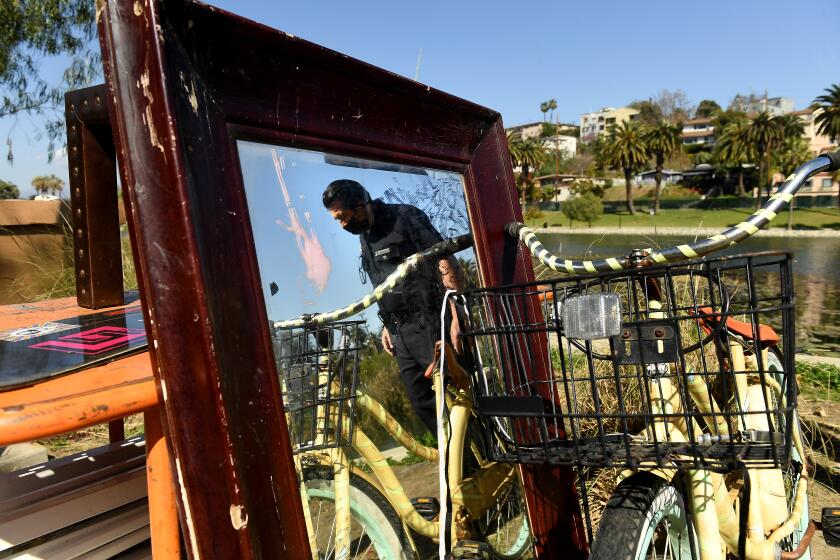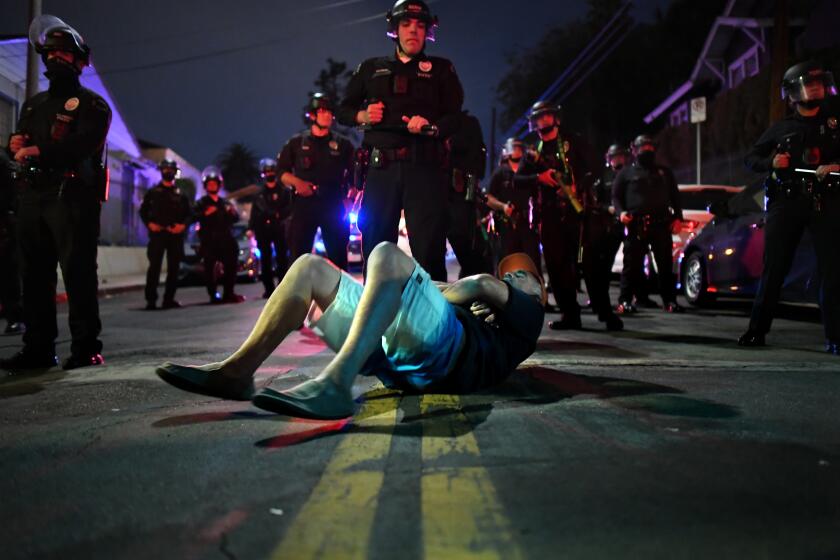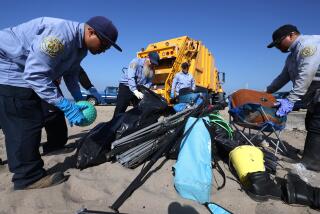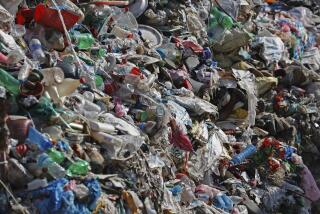After personal effects were retrieved, workers collected 35 tons of trash at Echo Park Lake
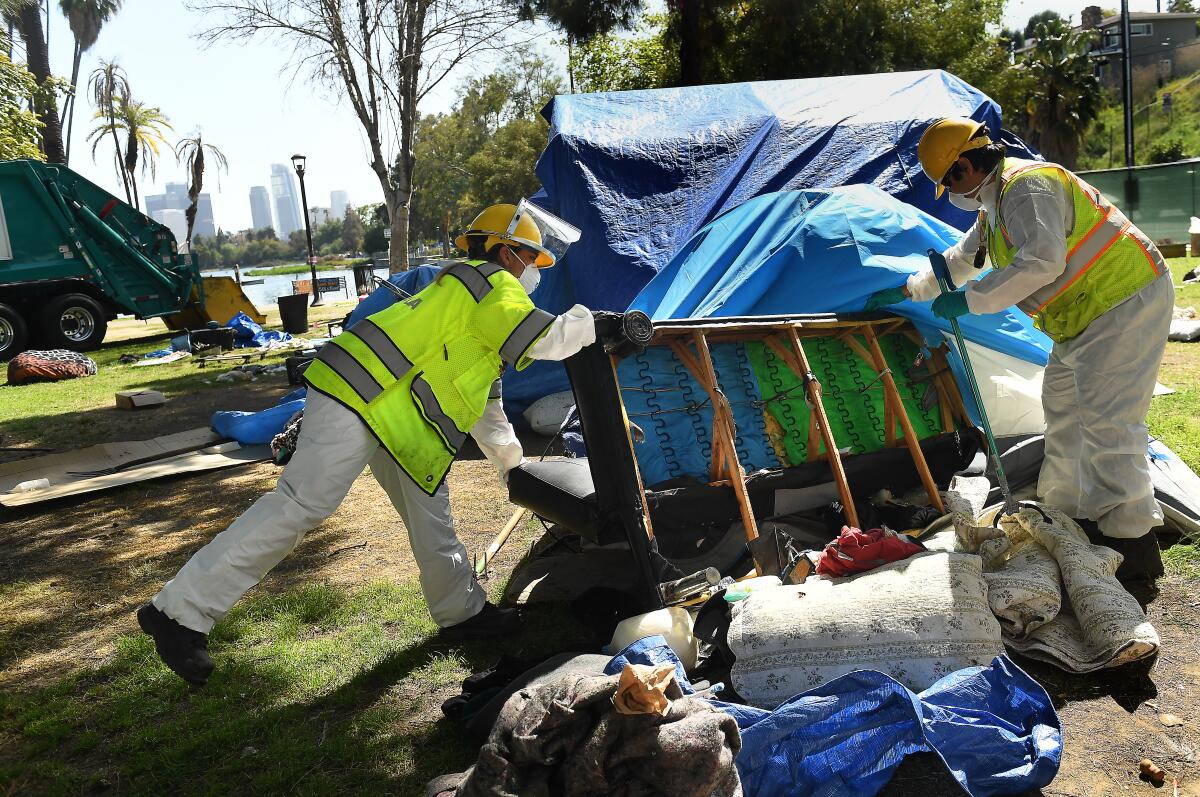
- Share via
Sanitation workers collected more than 35 tons of trash while cleaning the closed Echo Park Lake, which a spokeswoman for the Los Angeles parks department said the city is hoping to reopen by the end of the month.
This comes more than a month after the city cleared a large homeless encampment of more than 170 tents from the park amid large protests by activists in the community. The timing of the park’s closure was kept secret by city officials until the last minute.
But in the preceding weeks and months, outreach workers were able to get more than 160 people who had been living in the park into hotel rooms being rented by the city and other forms of interim housing.
Once it was closed, city workers began to clean the park, pack and store belongings that were left behind by residents and repair broken streetlights and the grass.
“The park repair progress is going well and moving rapidly,” said Rose Watson, a spokeswoman for the city’s Department of Recreation and Parks.
When the city swiftly fenced off Echo Park and prodded people out of a sprawling camp that had taken root along its scenic lake, it was an extraordinary move in a city full of homeless encampments.
“There is still work to be done, including turf refurbishment. I don’t have a confirmed completion date, but we are hoping to reopen the park by the end of the month,” she said.
Documents show that the city, among other efforts, planned to replace the surface of a playground on the north side of the park, fix bathrooms, replace drinking fountains, renovate the boathouse where the iconic swan boats are docked, and replace handrails and planks on the park’s lake bridge.
Before that could take place, the park needed to be cleaned, and that effort has been extensive.
L.A. Sanitation & Environment workers collected and disposed of more than 700 pounds of biological waste. That included about 180 pounds of feces and 564 pounds of urine, according to documents from the agency. That doesn’t include feces and urine from portable or stationary restrooms at the park, according to agency spokeswoman Elena Stern.
Workers also collected 30 pounds of drug paraphernalia, which includes needles. In total, sanitation workers collected and disposed of 300 pounds of hazardous waste, which included gasoline, paint thinner, cooking oil, nail polish remover, and containers with alcohol, rubbing alcohol and kerosene.
Echo Park residents say the park always had some homeless people sleeping in it but the numbers grew in the fall of 2019 and into early 2020. In January of last year, police and sanitation crews met resistance from park dwellers and their advocates, who protested a cleanup as an attempted eviction.
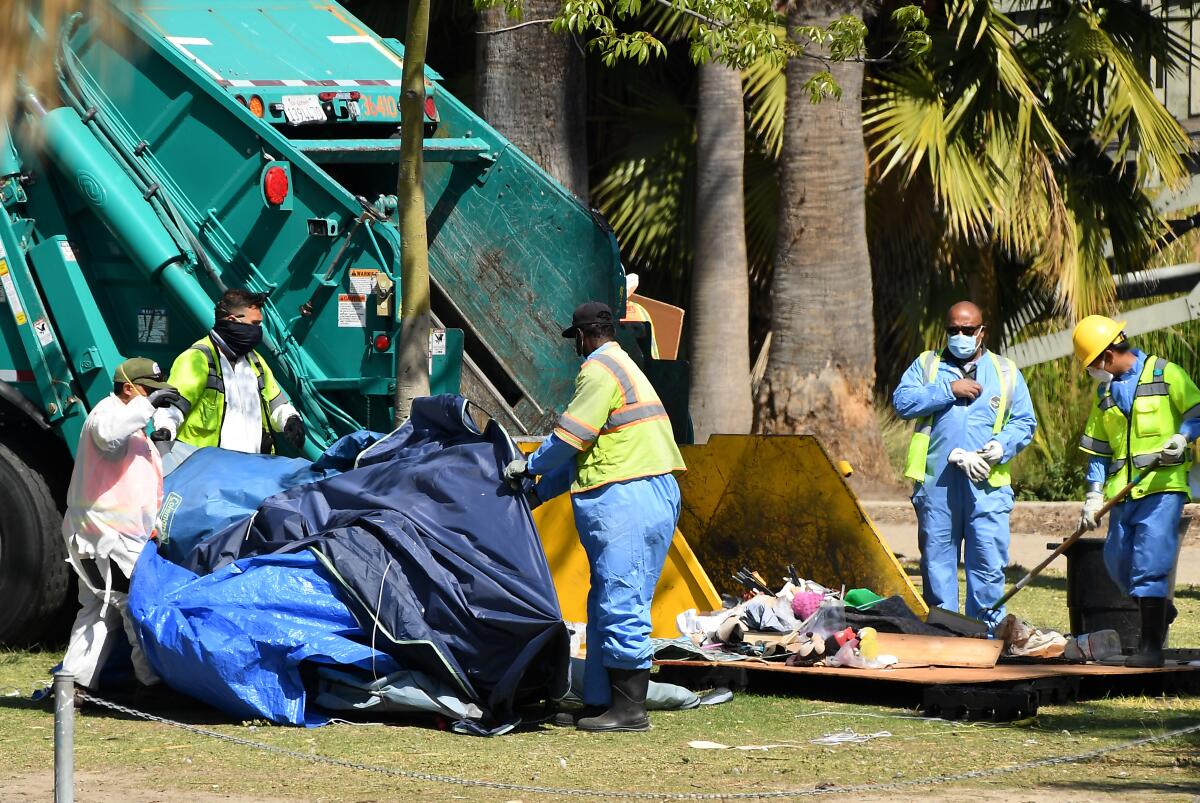
That was when the number of tents began to surge. The pandemic’s limits on how encampments should be cleared meant that there was little enforcement of rules against sleeping in the park.
As a result, the collection of tents evolved into a commune-like society with a shared pantry, a garden, a veneer of self-policing and a tenuous grasp on basic sanitation. It divided the Echo Park community and became a case study of the conflicts arising in neighborhoods across Los Angeles over the rights to public spaces and the competing interests of the housed and unhoused.
The decision to close the park and clear out the encampment sparked protests over two days. Protesters, journalists and legal observers were detained after police issued a dispersal order, then blocked in the crowd. On one night of protests, authorities said 182 people were arrested for failing to disperse.
LAPD and protesters square off in Echo Park as an imminent city closure draws near.
After the fence went up and the park was cleared, dozens of sanitation workers in white suits divided the park into zones and mapped out the tents before sorting through them — a fraught process of categorizing what are personal belongings and what is trash or hazardous waste. Things deemed to be personal items went into trash bags, which then went into storage boxes, headed to facilities where they could eventually be retrieved.
Sanitation workers tagged and delivered about 239 items to storage. It’s unclear how many have been retrieved by homeless people who had been living at Echo Park Lake.
Times staff writer Emily Alpert-Reyes contributed to this report.
More to Read
Sign up for Essential California
The most important California stories and recommendations in your inbox every morning.
You may occasionally receive promotional content from the Los Angeles Times.
